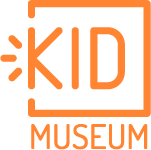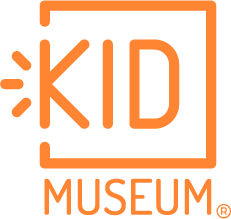
What does it mean to be a maker? Usually what first comes to mind is someone who is a tinkerer, a gadget-maker, an inventor. While this is true, it’s also unnecessarily restrictive — being a maker means so much more.
At KID Museum, we view a maker as someone who is a creative problem-solver, a doer, an innovator. Makers don’t just make things — they look at the world through the lens of possibility and apply their creativity to tackle challenges big and small. Makers may use a maker mindset in combination with technology to develop a new type of medical device or a robotic navigator; makers can also use this same mindset to tackle complex problems like equity and human rights as makers of social change.
The three individuals we’re honoring in this year’s Fête for the Future are perfect examples of such makers. Judy Heumann has dedicated her life’s work to advancing the rights of people with disabilities, demonstrating creativity and perseverance to secure legislation that has opened doors for countless individuals. Geoffrey Canada has pioneered an innovative approach to break the cycle of intergenerational poverty through educational opportunity. And journalist and radio host, Kojo Nnamdi, has shown us how listening with empathy and fostering dialogue can build shared understanding and community. They are justice makers, opportunity makers, and community makers.

At KID Museum, our work focuses on cultivating the skills and mindset for the next generation of makers. Through the experience of hands-on, project-based learning, youth develop technical skills in coding, robotics, electronics and engineering design. As they make lights light up and buzzers sing, these students are also developing skills in creative problem-solving, in exploring the world with empathy, in collaborating and adapting to keep evolving their ideas toward better solutions. They are becoming capable, confident changemakers who are equipped with the skills they need to invent a better future for us all.
Our collective experience of the pandemic and its ripple effects on all aspects of the economy has reinforced how quickly our world can change, and how much uncertainty and complexity our kids will confront in the decades ahead. We need to give our kids the tools they need to navigate this world and chart new paths for opportunity and success, and we need to ensure that youth of diverse backgrounds have equitable access to developing these skills. Now more than ever, we need more makers.

